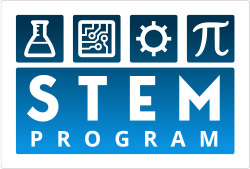Explore Programs
Master of Science in Electrical Engineering
 STEM Program
STEM ProgramDEGREE OVERVIEW
The Master of Science in electrical engineering degree program is designed to satisfy the needs of students seeking to increase knowledge in areas of electrical engineering related to engineering practice. The courses offered will provide practicing engineers with advanced, up-to-date education in electrical engineering.
ABOUT THE PROGRAM
Course offerings in the Master of Science in electrical engineering degree program provide students the opportunity to broaden and intensify knowledge in a number of areas of electrical engineering. Students, with the aid of a faculty advisor, may plan a program in any one of a number of fields of specialization within electrical engineering or from the offerings of related departments in science and engineering.
Graduate study and research are offered in the areas of:
- Digital and Microprocessor/Controller Systems: Digital Signal Processors, Embedded Microcontrollers, Microprocessors, Advanced Microprocessor Systems
- Solid-State Devices, Circuits and Systems: Semiconductor Theory, Microwave Devices and Circuits, Analog Electronics
- Systems and Controls: Systems, Controls, Manufacturing, Discrete Event Control, Neural and Fuzzy Control, Nonlinear Modern Control, Biomedical Signal Processing and Instrumentation
- Electromagnetic Fields and Applications: Remote Sensing, Electromagnetic Fields, Propagation, Scattering, Radiation, and Microwave Systems
- Digital Signal and Image Processing: Vision Systems, Neural Networks, Statistical Signal Processing, Nonlinear Image Processing, Virtual Prototyping, and Virtual Environments
- Telecommunications and Information Systems: Information Transmission and Communication Systems
- Power Systems: Efficient Operation, Generation, Transmission, Distribution, Deregulation
- Optical Devices and Systems: Optics, Electro-optics, Diffractive Optics, Nonlinear Optics, and Lasers
- Nanotechnology and MEMS - Materials and Devices: Quantum Electronic Devices, Semiconductor Surfaces and Interfaces, Single Electron Devices, Sensors and Detectors, Carbon Nanotube Devices, Noise and Reliability in Nano-electronic Devices, Microactuators, RF MEMS, Polymer Electronics, and Nanophotonics
- Renewable Energy Systems and Vehicular Technology: Power Electronics Engineering, Motor Drives, Renewable Energy Systems, Grid-Integration, and Vehicular Power Structures
LEARN MORE
- Admissions requirements
- Degree curriculum (scroll down to course list)
- Degree information in the University Catalog
DEGREE OPTIONS
- M.S. in Electrical Engineering, on-campus
- Fast Track B.S. to M.S. program in Electrical Engineering, on-campus
WHY CHOOSE US?
- Benefit from a well-designed curriculum that balances coursework and practical skills
- Engage in cutting-edge research projects that are funded by university, industry, and government agencies
- Learn from well-established faculty who work closely with industry
- Excellent job opportunities in DFW
GET STARTED
Take the next step toward investing in yourself by learning more about our Electrical Engineering - Master's (M.S.) program.
Apply Today
If you're ready, so are we. The next step is to apply. Applying for admission is easy, and we're here to work with you every step of the way.
PROGRAM CONTACT
Learn More
Electrical Engineering - Master's (M.S.)
Learn more about this program on the Department or College website.
